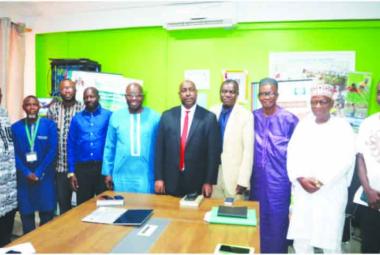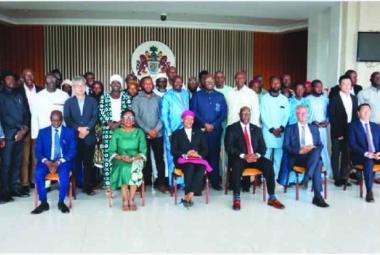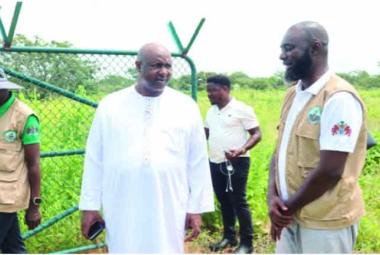By Fatou B. Cham
The Gambia Inclusive and Resilient Agricultural Value Chain Development Project (GIRAV) in collaboration with Regional Agricultural Directors (RADs) of the Department of Agriculture, has embarked on a district-level ‘Matching Grant Sensitisation’ campaign since July 18th. It ends today, July 25th 2022.
This is a follow-up to the previous regional sensitisation campaign which was rolled out from the 19th to the 25th of May, 2022.
This campaign brought together representatives of women, youths, district councilors, Village Development Committees, and small & medium enterprises, aimed to raise public awareness of the project’s Matching Grant Scheme (MGS).
The GIRAV Project is a five-year initiative funded by the World Bank Group with a US$40 million grant, enshrined with the development objective of inclusive, resilient, and competitive agricultural value chains, with a keen focus on smallholder farmers and agribusinesses in The Gambia.
The Matching Grant Scheme is one of the five components of the GIRAV project designed to directly benefit five hundred individual smallholder farmers, one hundred groups, and ten small and medium enterprises (SMEs). This is expected to be launched in August 2022.
Mr. Lamin Trawally, the Manager of the Matching Grant Scheme, affirmed that the GIRAV project is in place to encourage and promote commercial agriculture, stimulate socio-economic growth, food security, and shared prosperity. He therefore urged the public to take ownership of the grant and apply it within the prospects of the five value-chains: rice, horticulture (including mango), cashew, poultry, and maize.
Trawally assured that the implementation of the scheme will be governed by transparency, inclusiveness, sustainability, scalability, and catalyzing results at scale.
Fafanding Katiri Kinteh, the Social Safety Guard of the GIRAV Project, explained that measures will be in place to prevent disputes and address grievances in the governing of the project implementation. “The world Bank group has put in Grievance Redress Mechanism (GRM) to address minor and major disputes the project might encounter in its implementation strategy,” he informed.
The GRM, he further explained, will comprise of regional governors, National Environment Agency (NEA), area councilors, the Regional Agricultural Director, Women’s Bureau, Forestry, local NGOs, Physical Planning and Community Development Officer.
Lamin Camara, the Environmental Specialist of the GIRAV Project, added that the project is meant to empower farmers in The Gambia and to address some of the difficulties they faced. He assured of ensuring that environmental needs and requirements are observed in the implementation of the project.
The regional directors, representatives of farmers as well as other participants drawn from the aforementioned sectors., welcomed and emphasized the need for the proactive involvement of the regional agricultural directorates and members of the Technical Advisory Committees (TACs) in the screening of the matching grant applications, implementation, and monitoring of the project activities in the respective regions.






